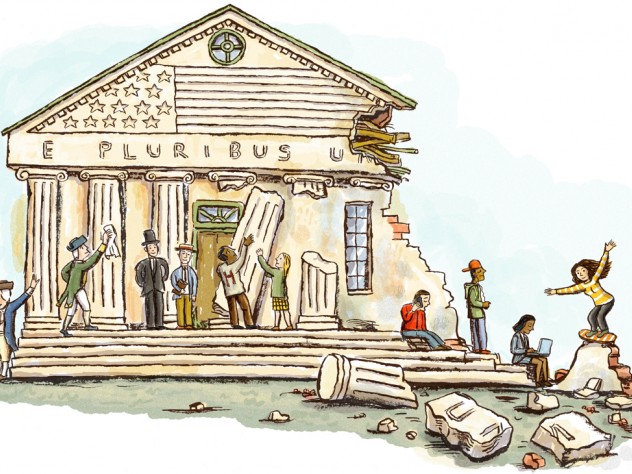
. . . if America were to fail, it would not be by foreign conquest but by suicide – due to civic ignorance about our laws and Constitution, combined with decline in the civic virtues needed to sustain civil disagreement and civic friendship amid the diverse views in our republic.
By Nazarul Islam
For too many Americans, “civics” is either a vague mystery or akin to a dental cleaning: we know that we should do it but would avoid it if possible. Regrettably, our country has chosen in the past 50 years the path of avoidance and ignorance by demoting civic education in our schools, including higher education, which also deems civics unserious, unpleasant, or less important.
The consequences of this de facto policy have been disastrous for our educational system and our civic culture. Some educators, scholars, and civic leaders have warned about it, and some serious efforts have been undertaken to redress it.
Nonetheless, what retired Supreme Court Justice Sandra Day O’Connor diagnosed over a decade ago as America’s “quiet crisis” remains a crisis, even if some progress has been made in raising awareness about the problem.
I’m grateful to belong to a family of fairly recent immigrants who instilled a love of America as an exceptional country, if a work in progress, along with a love of education. I also am grateful for those teachers who sustained an educational tradition stemming from the ancient Greeks and Romans, and that thrived in America until the last century – a serious civic education, regarded as both a duty for any free person in a decent political order and an indispensable element of an examined life.
To define civics and civic education, I invoke a recent national study of which I was a participant, having met the scholars and educators from Arizona State University, Tufts, iCivics, and the Florida department of education – entitled Educating for American Democracy.
We have gathered as a heterogeneous group by design, holding progressive and liberal-to-conservative views; yet we shared a premise that study of U.S. history must be melded with study of America’s constitutional and political principles to prepare citizens for self-government. Such a civic education is indispensable for preparing informed and engaged participants in the American experiment.
Also read: Renewing Civic Education
It requires instruction from kindergarten through high school – and into higher education for those so fortunate – of the civic knowledge and civic virtues needed to contribute responsibly to civil society and political affairs.
. . . if America were to fail, it would not be by foreign conquest but by suicide – due to civic ignorance about our laws and Constitution, combined with decline in the civic virtues needed to sustain civil disagreement and civic friendship amid the diverse views in our republic.
In our deliberations, we have noted that America had rallied against external threats in the past 75 years by re-investing in both K-12 and higher education and re-designing their priorities.
This process occurred in response to the 1957 Sputnik crisis of the Cold War and the economic-competitiveness crisis of the 1980s, with the educational beneficiary largely being science, technology, and mathematical studies, or STEM.
America has forgotten, however, Lincoln’s 1838 warning on the perpetuation of our political order: that if America were to fail, it would not be by foreign conquest but by suicide – due to civic ignorance about our laws and Constitution, combined with decline in the civic virtues needed to sustain civil disagreement and civic friendship amid the diverse views in our republic.
[author title=”Nazarul Islam ” image=”https://sindhcourier.com/wp-content/uploads/2021/05/Nazarul-Islam-2.png”]The Bengal-born writer Nazarul Islam is a senior educationist based in USA. He writes for Sindh Courier and the newspapers of Bangladesh, India and America. He is author of a recently published book ‘Chasing Hope’ – a compilation of his 119 articles.[/author]